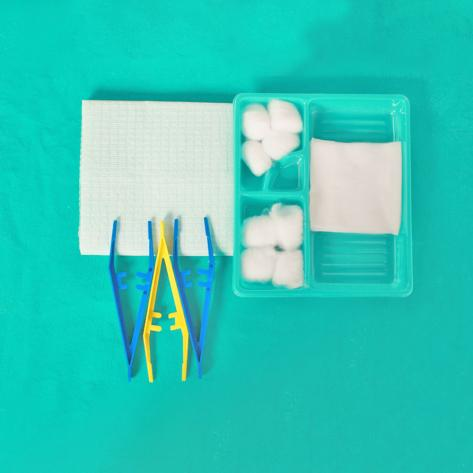18/10/2022
ByWinner Medical
 13931
13931
 Event
Event
To care for a wound, you'll need the right supplies and know what they mean. This blog article provides an easy guide to Wound Care Supplies so that you always have the necessary items on hand.

Introduction
Supplies needed for wound care depend on the type of wound and its severity. However, some supplies that are common for all types of wounds include adhesive bandages, gauze pads, ointments, hydrogen peroxide, and scissors. It is important to keep these supplies stocked in a variety of sizes so that they can be used for a variety of purposes.
Types of Wound Care Supplies
There are a few types of wound care supplies that you'll need for any type of wound. If the wound is minor, you may only need a bandage and ointment. For more serious wounds, you will need stitches, antibiotics, and pain relief.
Here is a list of the most common wound care supplies:
-Bandages: There are many different types of bandages, including gauze, ACE bandages, and tape. You'll need something strong enough to cover the wound but not too tight.
-Ointment: Ointments can be used to treat pain and inflammation caused by the wound. Make sure to find an ointment that is specific to your type of wound.
-Sutures: Sutures are often necessary for more serious wounds. They are used to close the open skin in the area around the wound.
The Importance of Keeping New Wound Supplies Clean
Keeping new wound supplies clean is important in ensuring the best outcomes for your patients. Supplies can become contaminated quickly in an environment with high levels of bacteria, such as a hospital or clinic. Contamination can lead to infection and increased pain for your patients. Here are some tips to help keep your wound supplies clean:
1. Always store new wound supplies in a sealed container or pack to avoid contamination.
2. Store supplies out of the reach of children and pets as they can be curious and may contaminate the supplies.
3. Clean supplies immediately after use with warm soapy water and a mild disinfectant, such as alcohol or peroxide.
4. Always keep a fresh supply of supplies on hand to ensure prompt treatment for any wounds that occur.
Buying Your Wound Care Supplies
If you are like most people, you probably didn't even think about wound care supplies until something bad happened. Hopefully, this guide will help you to get started on your wound care journey without spending a lot of money and without having to go into a lot of trouble.
When you are buying wound care supplies, the first thing you need to do is think about the type of wound that you have. If you have a fresh injury, then you will need soap and water to clean it. If the wound is older or has been infected, then you will need different supplies.
The next thing that you will need is some medical tape. This can be used for both fresh and older wounds. You will also need a bandage or wrap. These can be used for both fresh and older wounds. You will also need some antibiotic ointment or cream. This should be used if the wound is infected. Finally, you will need some gauze pads or wraps. These can be used for both fresh and older wounds.